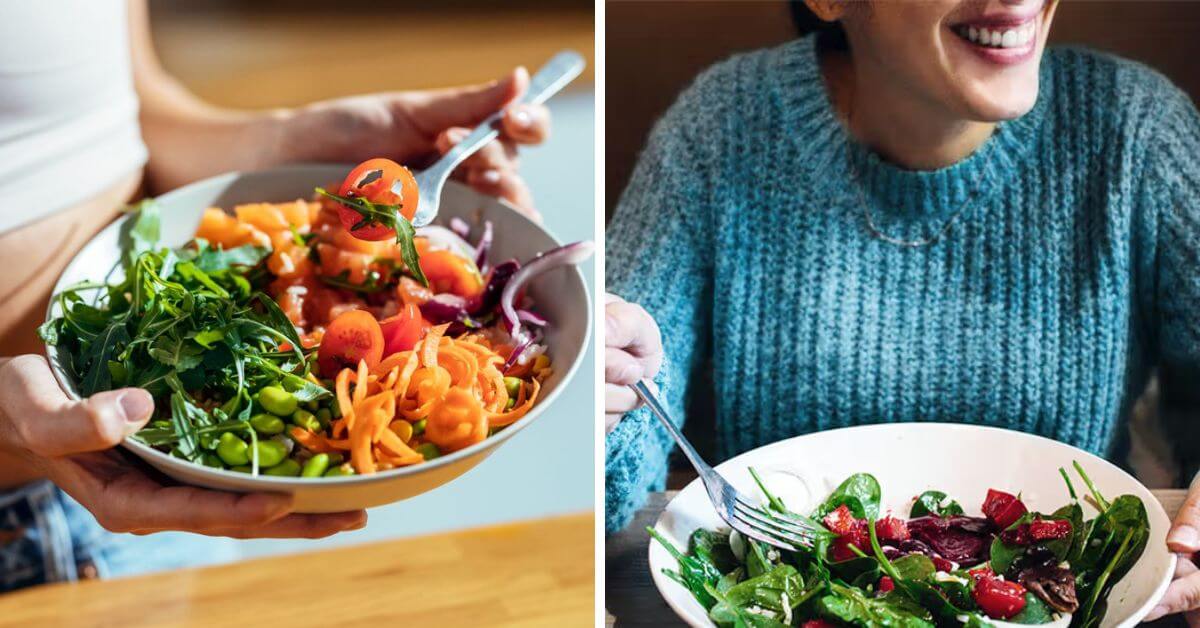Are you interested in adding more plant-based foods to your diet?
This article will present the top 10 vegan foods that may be worth trying. From tofu to avocado, quinoa to chia seeds, these nutrient-rich foods can offer health benefits and have positive environmental implications.
Discover the advantages of a vegan diet, its environmental impact, and suggestions for transitioning to a vegan lifestyle. Explore a variety of delicious and nutritious vegan alternatives!
In This Article
1. Tofu
Tofu is a versatile plant-based protein source that is commonly used in vegan cuisine due to its ability to adapt to various dishes and effectively absorb flavors.
There are different types of tofu available to suit different cooking needs. Silken tofu has a smooth and creamy texture, ideal for blending into sauces, smoothies, or desserts. Firm tofu maintains its shape well, making it suitable for stir-fries or grilling. Extra-firm tofu is preferred for dishes that require a firmer texture, such as baking or marinating.
Along with providing a protein boost to meals, tofu is a good source of iron, calcium, and manganese. Its complete amino acid profile makes it a valuable component in vegan diets, ensuring a well-rounded balance of essential nutrients.
2. Quinoa
Quinoa is a nutrient-rich grain that serves as a complete plant-based protein source. It is a popular option among vegans due to its versatility and health benefits, making it a valuable addition to any diet.
Originally grown in the Andean region of South America, quinoa has a long history dating back thousands of years as a staple food for civilizations such as the Incas.
The modern popularity of quinoa can be largely attributed to its gluten-free characteristics and exceptional nutritional value. It serves as an ideal base for a variety of dishes like salads, bowls, and side dishes.
Quinoa is also known for its high fiber content, quality protein profile, and significant presence of essential minerals such as magnesium, iron, and zinc. These attributes make it a preferred option over traditional grains.
3. Avocado
The avocado is a fruit known for its creamy texture and rich in healthy fats and nutrients. It is commonly used in vegan recipes to add a flavorful and nourishing element to dishes.
With high levels of monounsaturated fats, vitamins E, K, and C, along with minerals like potassium and folate, avocados are considered a nutritional powerhouse. They can be incorporated into various dishes such as salads, spreads, smoothies, and desserts to enhance flavor and add a healthful boost to the meal.
Avocados are versatile and can be mashed for guacamole, sliced for salads, blended into creamy sauces, or even used as a butter substitute in baking. This makes them a popular choice for those looking for nutritious and delicious plant-based options.
4. Nutritional Yeast
Nutritional yeast is a popular ingredient among vegans due to its cheesy flavor and vitamin B12 content. It is a versatile ingredient that enhances the taste of plant-based dishes by providing depth and umami.
It is frequently used as a substitute for cheese, imparting a savory and slightly nutty flavor that can replicate the creaminess of dairy cheese in dishes like vegan mac and cheese or cheesy popcorn. Nutritional yeast is rich in essential nutrients, including high-quality protein, fiber, and various B vitamins.
This makes it not just a flavorful addition but also a beneficial one for individuals adhering to a plant-based or vegan diet.
Its B12 content is especially important for vegans, as this vitamin is predominantly present in animal products, highlighting the significance of nutritional yeast as a valuable source for sustaining optimal health.
5. Chickpeas
Chickpeas are a nutrient-rich legume that is packed with plant-based proteins and fiber, making them a versatile ingredient in vegan cooking. They offer a hearty and satisfying element to meals.
Whether they are blended into creamy hummus, added to flavorful curries, tossed in vibrant salads, or roasted for a crunchy snack, chickpeas are a kitchen staple that can be incorporated into various dishes.
Not only do they provide a substantial amount of protein, which makes them an excellent meat alternative for vegans, but their high fiber content also supports digestion and helps promote a feeling of fullness. This makes them an ideal addition to a plant-based diet focused on holistic health.
6. Lentils
Lentils are small legumes known for their richness in iron and protein, commonly used in vegan dishes for their nutritional benefits and cooking versatility.
Among different types of lentils, green lentils hold their shape well when cooked, making them great for soups and salads, while red lentils easily break down, ideal for thickening soups and stews. Brown lentils offer a middle ground, suitable for various dishes.
The high iron content in lentils is particularly advantageous for vegans who may have difficulty meeting their daily iron requirements.
Adding lentils to meals offers a natural source of plant-based protein, contributing to overall health and wellness.
7. Kale
Kale is a leafy green vegetable that is considered a powerhouse ingredient in vegan diets due to its nutrient density, antioxidants, and essential nutrients. It is well-known for its exceptional nutritional profile, providing significant amounts of vitamins A, C, and K, which are important for immunity and skin health.
Additionally, kale is a good source of minerals like iron and calcium, which support bone health and red blood cell production.
Its versatility allows it to be used in various dishes, such as salads, smoothies, soups, and stir-fries, adding both texture and nutritional value. The reputation of kale as a superfood is strengthened by its ability to enhance the flavors of different dishes while offering numerous health benefits.
8. Chia Seeds
Chia seeds are small but mighty nutritional powerhouses that are rich in omega-3 fatty acids and fiber. They are commonly used in vegan desserts and beverages to add a healthy element to indulgent treats.
These adaptable seeds offer not only benefits for heart health because of their omega-3 fatty acids but also serve as a significant source of antioxidants. This can help reduce inflammation and contribute to overall well-being.
With their high fiber content, chia seeds support digestive health by promoting regularity and aiding in weight management. In vegan baking, chia seeds are often utilized as an egg replacement in recipes, acting as a binding agent that replicates the texture and moisture typically provided by conventional eggs.
From chia seed puddings to smoothie bowls and baked goods, these tiny seeds present a wide range of creative possibilities in plant-based cooking.
9. Tempeh
Tempeh is a popular meat alternative in vegan cooking, known for its firm texture and savory taste. The process of fermenting soybeans to create tempeh involves cooking soybeans, adding a starter culture with Rhizopus mold, and allowing it to ferment.
During fermentation, beneficial probiotics are produced, enhancing tempeh’s digestive health benefits. Along with being a good source of protein, tempeh is rich in iron, making it a nutritious option for vegetarians and vegans.
This versatile ingredient can be used in various dishes such as stir-fries, sandwiches, salads, and bowls, providing a satisfying and flavorful meat substitute.
10. Seitan
Seitan is a protein-rich meat substitute made from wheat gluten and is commonly used in vegan cuisine due to its chewy texture and ability to imitate meat in dishes.
The process of preparing seitan involves washing wheat flour dough to eliminate starch, resulting in the extraction of gluten. The extracted gluten is then cooked in a savory broth to enhance its flavor, leading to a firm, meat-like texture that can be sliced, diced, or shredded for various culinary creations.
With its high protein content, seitan is a popular option for individuals seeking plant-based protein sources. Its neutral taste allows it to absorb spices and marinades well, making it a versatile ingredient suitable for a variety of dishes such as stir-fries, stews, sandwiches, and other meatless meals.
What Is a Vegan Diet and Why Should You Try It?
A vegan diet is centered on plant-based foods and excludes animal products. It offers numerous health benefits, supports animal-friendly practices, and promotes a more sustainable and ethical lifestyle for individuals.
Individuals who follow a vegan lifestyle focus on whole grains, fruits, vegetables, nuts, seeds, and legumes. This dietary choice can help reduce the risk of heart disease, diabetes, and certain types of cancer. Veganism also has a positive environmental impact by requiring fewer resources and emitting fewer greenhouse gases.
Opting for vegan options not only shows compassion towards animals but also encourages a sense of connection with the world. This alignment of personal health with environmental sustainability highlights the holistic benefits of choosing a vegan lifestyle.
Also Read: Benefits of a Healthy Diet
What Are the Health Benefits of a Vegan Diet?
A vegan diet rich in nutrient-dense whole foods provides a balanced and diverse array of vitamins, minerals, plant proteins, and antioxidants, supporting overall health and well-being for individuals who adopt this plant-powered lifestyle.
By opting for a plant-based diet, one can significantly reduce the risk of chronic diseases such as heart disease, type 2 diabetes, and certain types of cancer. The emphasis on whole plant foods in a vegan diet aids in better weight management, as these foods tend to be lower in calories and saturated fats while being rich in fiber to promote feelings of fullness.
Consuming a variety of fruits, vegetables, whole grains, nuts, seeds, and legumes ensures a wide spectrum of essential nutrients, leading to improved energy levels and overall vitality.
How Can a Vegan Diet Help the Environment?
Adopting a vegan diet can positively impact the environment by reducing greenhouse gas emissions, conserving water resources, minimizing deforestation, and promoting sustainable agricultural practices. This makes it an eco-conscious choice for individuals concerned about the planet.
The shift towards plant-based diets has been associated with a decrease in the carbon footprint linked to food production. Livestock farming is a significant contributor to greenhouse gas emissions, representing a substantial portion of total emissions globally.
Choosing plant-based foods allows individuals to significantly reduce their carbon footprint and contribute to efforts to mitigate climate change.
Additionally, transitioning to veganism also plays a significant role in water conservation. Animal agriculture demands large amounts of water for livestock maintenance and feed production. By opting for vegan alternatives, less water is used, aiding in the preservation of this vital resource.
What Are the Common Nutrient Deficiencies in a Vegan Diet and How Can They Be Prevented?
A vegan diet is generally rich in essential nutrients, but there are specific micronutrients such as vitamin B12, iron, calcium, omega-3 fatty acids, and zinc that may need special attention and supplementation to prevent deficiencies and maintain optimal health on a plant-based diet.
Vitamin B12, for example, is mainly found in animal products, so vegans often rely on fortified foods like plant-based milks, cereals, or nutritional yeast, or consider taking a B12 supplement. Iron can be obtained from plant sources such as legumes, leafy greens, and fortified cereals, and combining these with vitamin C-rich foods like citrus fruits or bell peppers can improve absorption.
Calcium can be sourced from fortified plant milks and juices, tofu made with calcium sulfate, and leafy greens such as kale and collard greens. Omega-3 fatty acids can be obtained from flaxseeds, chia seeds, walnuts, and algae-based supplements, while zinc can be found in lentils, chickpeas, seeds, and nuts.
It is important for vegans to vary their food choices to ensure a wide range of nutrients. Regularly monitoring nutrient intake and seeking advice from healthcare professionals or registered dietitians can offer personalized recommendations to meet individual needs.
What Are Some Tips for Transitioning to a Vegan Diet?
Transitioning to a vegan diet involves gradually replacing animal-based foods with plant-powered alternatives, experimenting with new ingredients, exploring vegan recipes, educating oneself on vegan nutrition, and connecting with the supportive vegan community for guidance and inspiration throughout the dietary shift.
When starting out on a vegan journey, it’s helpful to focus on incorporating familiar vegan-friendly foods such as fruits, vegetables, grains, beans, and nuts. These familiar items can serve as the foundation of meals as individuals begin to explore more elaborate vegan dishes.
Stocking the kitchen with essential vegan staples like grains, legumes, nuts, seeds, tofu, and plant-based milk can make meal preparation easier and more convenient. Planning balanced meals rich in a variety of nutrients is key to ensuring dietary needs are met as a vegan.
How Can You Incorporate These Vegan Foods into Your Meals?
Incorporating vegan foods such as tofu, quinoa, avocado, and lentils into meals can provide a variety of culinary options, including savory main dishes, refreshing salads, and indulgent desserts.
A breakfast option to consider is making a flavorful tofu scramble seasoned with turmeric, nutritional yeast, and fresh herbs. This can be paired with whole-grain toast and a side of sautéed spinach for a balanced morning meal.
Quinoa salads are a nutritious and filling choice for lunch, especially when combined with roasted vegetables, crunchy nuts, and a zesty lemon tahini dressing.
For snacks, avocado toast sprinkled with sea salt and red pepper flakes is a simple yet satisfying option.
For a comforting dinner, one could make a hearty lentil soup with aromatic herbs and spices, served with crusty whole-grain bread for a complete meal.







